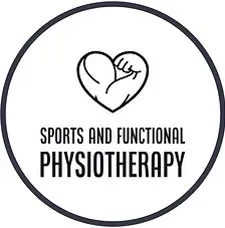Sports Injuries
Recover Smarter, Return Stronger
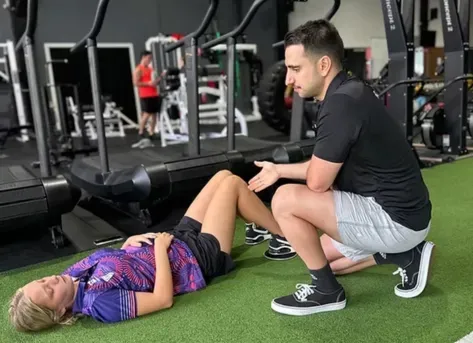
When it comes to treating sports injuries, there’s physio, then there’s physio
The first kind will rub the injured area, put a heat pack on, maybe do some acupuncture or dry needling, give 1 or 2 exercises to go home with until you come back the next week to repeat the same thing over again
And we wonder why athletes re-injure, or return to sport so much slower and de-conditioned than they were before injury.
At Sports and Functional, we don’t just ready our athletes to “return to play”, we ensure our athletes can return to PERFORM with the lowest possible re-injury risk.
Before we go over the issue of de-conditioning and performance decline after injury, let’s touch on re-injury rates.
ACL re-rupture rates are reported as high as 20%, hamstring re-injury rates vary between 16 and 38%, and some studies showing ankle sprain re-injuries reaching 50% !
Our job as Sport’s Physio’s is to ensure a timely and efficient recovery process, whilst minimizing the risk of re-injury upon return to sport. Some rest and massage, with 1 or two exercises to do at home just doesn’t cut it.
A solid “return to perform” plan must be established, which is CRITERIA-BASED, not just time-based
Let’s take a shoulder dislocation for example. On average, this can take up to 6-8months post surgery to return to a contact sport. However, we don’t just use “6-8 months” as the criteria to return to sport. We need specific rehab criteria throughout the entire recovery phase to ensure athletes are ready to return.
For example, our shoulder dislocation protocol has 5 phases (dependent on the sport) and every athlete must pass certain exit criteria in order to progress to the next phase. Phase 1 revolves around mobility criteria, phase 2 focus’s on strength criteria, phase 3 focus’s more on power and “rate of force development” (often overlooked in shoulder rehab) and phase 4 and 5 builds on ensuring the athlete can tolerate the demands of their chosen sport. A rugby league athlete must meet a certain number of contact exposures with efficient technique before returning to train. A tennis athlete must attain a certain amount of court time before returning to competition etc etc.
This way, we can ensure you are actually ready to tolerate the demands of your chosen sport, therefore avoiding a return to physio 6 months later with another shoulder injury….
Our ACL Protocol is another perfect example. There’s a huge problem with ACL injury, which is that it keeps happening! You just have to come to one of our rehab sessions of an afternoon and see a number of our athletes who are on their 3rd or 4th ACL rupture (we did not rehab their first ACL tears).
This is a huge problem, not only due to the psychological toll it takes on athletes (particularly youth athletes), but the time missed training and playing their sport can have a huge impact on athletic development. Hence, our ACL protocols have developed over the years to ensure that specific targets are met to progress through each phase of rehab and that strict return to sport criteria are ticked off to ensure the lowest re-rupture risk.
Our sports injury rehab model was developed as a result of the constant re-injury rates in athlete populations. We scrapped the traditional model of Physiotherapy, whereby you see your Physio once per week for 30 minutes, and we now follow a fixed fee rehabilitation plan whereby you pay no more than what it would cost for one physiotherapy session, but you see your Physio as many times a week as needed for no extra charge!
You receive constant guidance and support throughout your rehabilitation to ensure optimal execution of exercises and technique. Your physio will be on deck at all times during your rehab to ensure you are progressing through the rehab stages efficiently, all whilst being able to complete your program in a state of the art facility!
Now to touch on readying our athletes for returning to PERFORM
Some use the phrase, the “gift of injury”.
Perceiving injury as a gift might be a bit far-fetched, but it’s not uncommon for our athletes to return as BETTER athletes than they were before their injury.
The classic example is a hamstring injury. Commonly, hamstring injuries can occur as a result of sub-optimal running technique (e.g. overstriding, excessively upright running posture etc). As Sports Physio’s, our role is to identify any impairments in an athlete’s technique and determine if this may be a contributor to injury. If so, we aim to address running technique to optimize technique and prevent re-injury.
As a side effect, running ability is enhanced, allowing the athlete to run faster and more efficiently than before they were injured. It’s not uncommon for athletes to comment on their improvements in performance once they’ve completed their injury rehab with us.
Even if you’re not that focused on performance (e.g. if you’re a social touch player) and even if you have a minor injury (Grd 1 ankle sprain), we still aim to identify any potential technique impairments that may have contributed to your injury, therefore we can mitigate the chances of re-injury and potentially unlock much greater playing ability to enjoy your social touch that much more.
Don’t settle for the standard Physio approach of 1 or 2 exercises, a quick rub down and a heat pack. Click the link below to book into your Physio appointment to ensure you rehabilitate your injury efficiently and avoid re-injury down the track!






find out more about how we treat these Sporting Injuries
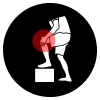
Knee Inuries in Sports

Lower Back Pain In Sports

The Sporting Shoulder

the sporting foot and ankle

neck pain and dysfunction
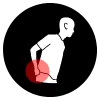
sporting hip injuries
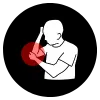
elbow injuries in sprots
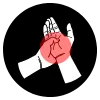
sports hand injuries
Get Back in the Game Faster
Don’t let injuries hold you back. Reach out today to start your recovery with a tailored treatment plan designed to get you back to doing what you love.
Contact Us
Phone: 0424 144 092
Email: [email protected]
Address:
Daisy Hill Location
10 Old Chatswood Rd Daisy Hill QLD 4127
Mount Gravatt Location:
Westfield Shopping Centre, Shop MM16 Kessels Rd, Upper Mount Gravatt QLD 4122
Follow Us
© Sports and Functional Physiotherapy 2024 | Website & Marketing Powered By Gymini

